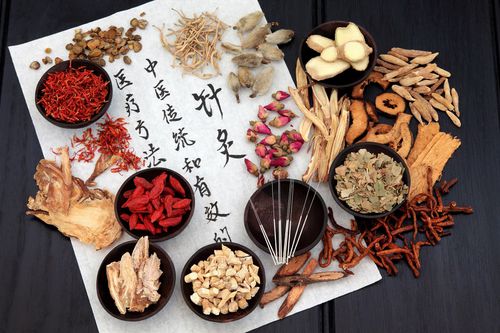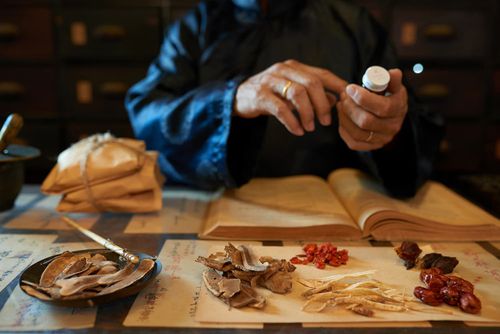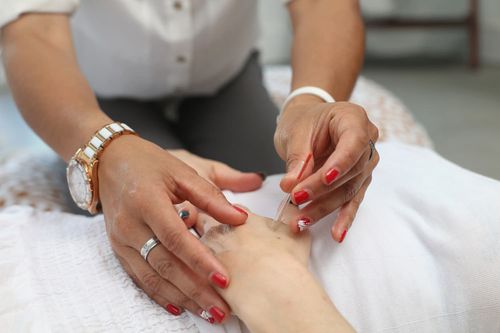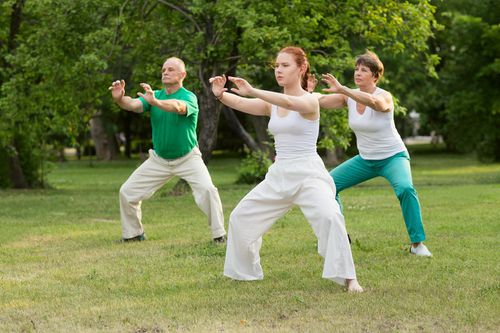What is Traditional Chinese Medicine (TCM)?
Traditional Chinese Medicine (TCM) is an ancient medical system that first originated in China and has been used to diagnose, treat and prevent illnesses for more than 2,500 years. Aside from providing remedy to ailments and changing states of mind, it can be used to improve recuperative power, immunity from potential illnesses, and the capacity for pleasure, work and creativity.

How Does Traditional Chinese Medicine (TCM) Work?
In TCM, the five elements of nature outline the relationship between them and the life force called "qi" that flows through them. The basic elements are wood, earth, fire, metal and water. They come into play during a consultation with a TCM doctor as they are associated with the different parts and organs in the body.
- Wood - Liver, gallbladder, tendons, eyes
- Earth - Spleen, stomach, mouth, muscles
- Fire - Heart, tongue, pulse
- Metal - Lungs, nose, skin
- Water - Kidneys, ears, bones
Each element controls and promotes another as demonstrated below:
- Wood controls earth
- Earth controls water
- Water controls fire
- Fire controls metal
- Metal controls wood
- Wood promotes fire
- Fire promotes earth
- Earth promotes metal
- Metal promotes water
- Water promotes wood
TCM does not focus on science and medicine. As a matter of fact, it is based on balance, harmony and energy. It focuses on balancing the flow of qi, or the vital energy that is responsible for life, to ward off disease. To ensure that the qi stays balanced, the Yin and Yang should always be in harmony. These two opposing forces mirror the concept of the universe that everything has a corresponding opposite that complements it. Having too much of the attributes of one of these forces leads to disease, hence balance is key.
The treatment approaches used within the TCM framework aim to adjust and harmonise the Yin and Yang to maintain health and wellbeing. There are several modalities in TCM which include:
- Acupuncture
- Tai Chi
- Moxibustion
- Tui Na Massage
- Cupping
- Meditation
- Chinese Herbs
- Chinese Nutrition
What are the Benefits of Traditional Chinese Medicine (TCM)?
Balancing the harmony of Yin and Yang are achieved by regulating and stimulating qi energy, moisture and blood. This allows the weak organs to be toned, congested channels to open, tightness to be softened, excess to be removed, agitation to be calmed, coldness to be warmed, heat to be cooled, dryness to be moistened, and dampness to be drained.
Traditional Chinese Medicine (TCM) can holistically treat a whole range of health issues, even those that seem incurable within the conventional medicine framework. It can help with the following:
- Lower back pain
- Neck pain
- Osteoarthritis
- Carpal tunnel syndrome
- Headaches and migraines
- Inflammation
- Stress
- Insomnia
- Anxiety
- Depression
- Parkinson's disease
- Cerebral palsy
- Fibromyalgia
- Stroke
- Heart disease
- Kidney disease
- Mental disorders
- Respiratory issues
- Digestive problems
- Psoriasis and other skin conditions
- Ovarian cancer
- Fatty liver disease
- Infertility
- Neuropathy
- Pain and fatigue caused by cancer treatments
What Can You Expect From Traditional Chinese Medicine (TCM)?
A typical TCM consultation session can take anywhere from 5 to 10 minutes. To diagnose the patient's symptoms, the practitioner will check the patient's tongue (top and bottom), take their pulse and look at the inside of their lower eyelids. Once they have identified the root cause of the patient's health issue, the TCM doctor will develop a treatment plan tailored to the former's needs. No two prescriptions are ever the same, even when the same condition is being treated. The reason for this is that each person's body has a unique constitution.
Because it's a holistic approach to health, TCM works on the mind, body and energy of the patient. It usually takes two to six months to obtain profound and long-term results. However, some long-standing conditions may take longer to treat. Most — if not all — TCM doctors would give their patients a list of foods that they need to avoid while taking Chinese herbs to support their body's healing process. Patients with liver disease, for instance, are required to abstain from eating salty, spicy and sweet foods, while someone with a heart ailment should avoid greasy and cold foods.
A TCM consultation can be delivered in-person or online, so even people who are suffering from extreme pain and couldn't commute to the practitioner's clinic can receive treatment in the comfort of their homes.
Is Traditional Chinese Medicine (TCM) Safe?
TCM is safe for people of all ages, including children and elderly folks. Unlike traditional medicines and medical treatments, it does not come with serious side effects. However, if you're taking certain medications, you must inform your TCM beforehand so that they can appropriately schedule the intake of your Chinese herbs.




